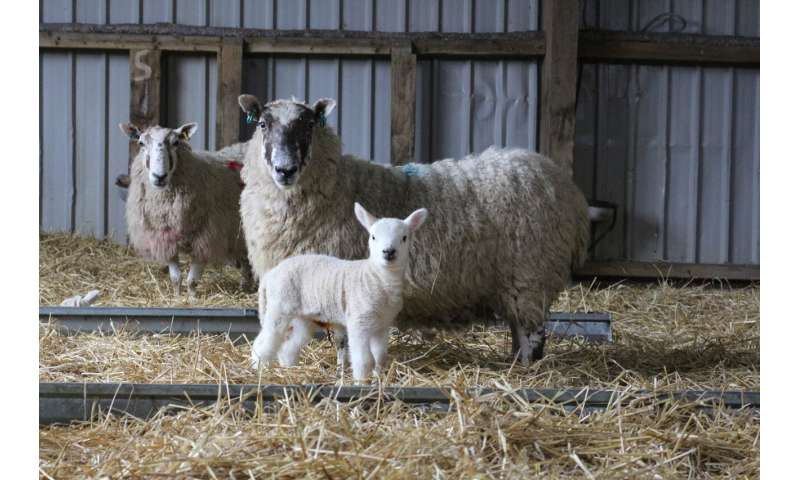£6 million novel parasite sheep vaccine project launched

Researchers at The James Hutton Institute are supporting a £6 million project led by Moredun Research Institute to develop an effective vaccine for on-farm worm control.
The project is an international, multi-institutional partnership with the University of Glasgow and the University of New England, Australia.
Parasitism by gastrointestinal nematodes (parasitic worms which live in the gut) has a major impact on animal production worldwide. Nematode infections of sheep negatively affect health and welfare outcomes for infected animals.
The cost of parasitism in the UK is estimated at approximately £4 per lamb through reduced weight gain and treatment costs and the total cost to the Australian sheep and goat industry is estimated at more than AU$450 million each year. This inefficiency in production also impacts greenhouse gas emissions from agriculture, affecting our ability to reach Net Zero targets unless we intervene.
Chemical treatments are the mainstay of parasite control programs for nematode infections, but resistance to these treatments severely undermines control options on-farm in many areas of the world. To allow a sustainable future for sheep farming, vaccines need to be developed.
Although much progress is being achieved in this area, much of it funded by significant investment from the Scottish Government, UKRI and others, development of a commercial worm vaccine is a long-term project.
er, by combining their expertise in parasitology, immunology, and vaccine formulation, along with recent technological advances, the work of the partnership will significantly increase the chances of success.
Professor Love, a research leader from the James Hutton Institute and participant in the project, says, "This major project is a significant step towards controlling gastrointestinal nematode infections of sheep throughout the world, which would enhance animal welfare, while reducing serious economic losses and agricultural greenhouse gas emissions."
Professor Andrew Love's group at the Hutton will incorporate the vaccine components identified by the partners into novel thermally responsive particle and gel-based systems to improve the delivery and strengthen the capacity of the vaccine to protect livestock against infection by gastrointestinal nematodes.
Dr. Alasdair Nisbet, project lead from Moredun Research Institute, says, "We are delighted to be able to lead this international team to develop our nematode vaccine technology further and push towards a commercial product to help control this major issue in the sheep industry in the UK and beyond."
This project is co-funded by each of the partners with matched funding from the Australian Federal Government through the Meat & Livestock Australia Donor Company to a total value of just over £6 million (AU$ 11 million) over five years.
More than half of the budget will come to the Scottish partners, with the intention to develop a commercially exploitable vaccine against the main gastrointestinal nematodes of sheep globally.
More information:
Press and media enquiries:
Elaine Maslin, Media Officer, The James Hutton Institute, elaine.maslin@hutton.ac.uk, tel: +44 (0)1224 395076 or +44 (0)7977 805808
Provided by The James Hutton Institute